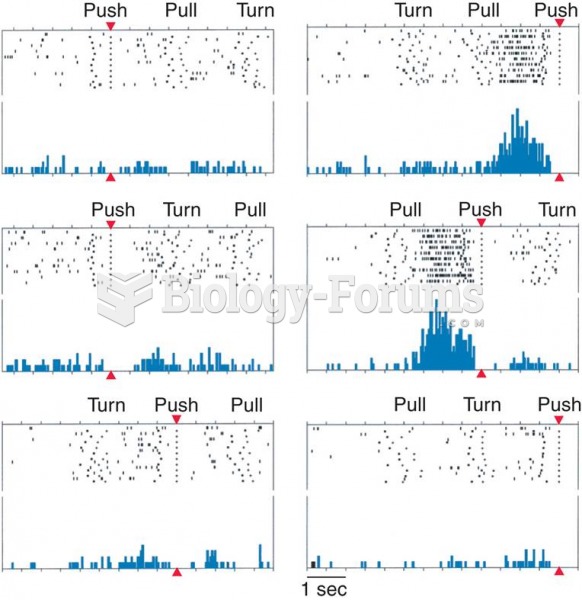|
|
|
In ancient Rome, many of the richer people in the population had lead-induced gout. The reason for this is unclear. Lead poisoning has also been linked to madness.
Elderly adults are at greatest risk of stroke and myocardial infarction and have the most to gain from prophylaxis. Patients ages 60 to 80 years with blood pressures above 160/90 mm Hg should benefit from antihypertensive treatment.
The B-complex vitamins and vitamin C are not stored in the body and must be replaced each day.
More than 20 million Americans cite use of marijuana within the past 30 days, according to the National Survey on Drug Use and Health (NSDUH). More than 8 million admit to using it almost every day.
Bisphosphonates were first developed in the nineteenth century. They were first investigated for use in disorders of bone metabolism in the 1960s. They are now used clinically for the treatment of osteoporosis, Paget's disease, bone metastasis, multiple myeloma, and other conditions that feature bone fragility.
 Female leopard in the Sabi Sands area of South Africa. Note the white spot on its tail, used for com
Female leopard in the Sabi Sands area of South Africa. Note the white spot on its tail, used for com
 Place sheet or towel over area to be heated. Use sufficient heat barrier for the heat source used. ...
Place sheet or towel over area to be heated. Use sufficient heat barrier for the heat source used. ...





